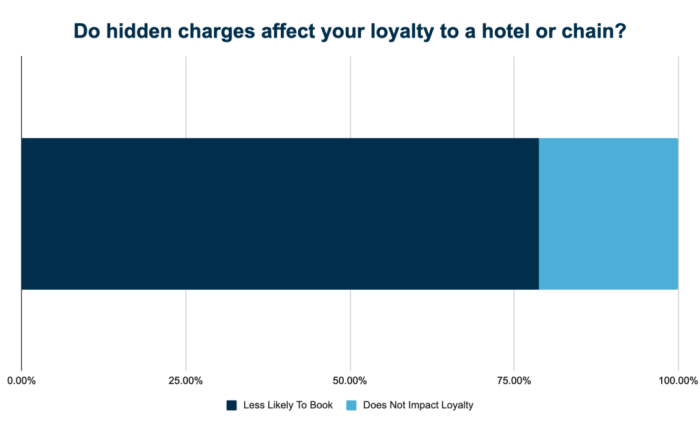How To Avoid Hidden Fees When Booking A Hotel Stay
How to Avoid Hidden Fees When Booking a Hotel Stay is essential for every traveler eager to enjoy their stay without unexpected financial burdens. Hidden fees can quietly inflate the price of a hotel stay, turning a seemingly great deal into a costly mistake. By understanding these fees and knowing how to navigate them, you can ensure that your hotel experience remains enjoyable and budget-friendly.
With the right strategies, you can uncover potential charges that may not be immediately visible, allowing you to make informed decisions. From researching hotel policies to reading the fine print and asking the right questions, this guide will equip you with the knowledge to avoid surprises during your hotel stay.
Understanding Hidden Fees
When planning a hotel stay, it’s easy to overlook the additional costs that can unexpectedly inflate your bill. Hidden fees often lurk in the fine print, making it crucial to be aware of what you might face when booking your accommodations. These fees can transform what appears to be a great deal into an unpleasant surprise upon check-in or checkout.Hidden fees can take various forms, affecting the total cost of your stay.
Common types include resort fees, parking charges, and Wi-Fi access fees. These additional costs can be frustrating, especially when travelers believe they have budgeted accurately based on the advertised room rate.
Common Types of Hidden Fees
Understanding these fees is essential to avoid disappointment. Here are some of the most frequently encountered hidden charges:
- Resort Fees: Many hotels charge a daily resort fee that may not be included in the initial booking price. This fee typically covers amenities such as pool access, gym usage, or Wi-Fi, but it can add a significant amount to your stay.
- Parking Charges: If you plan to drive, be aware that some hotels impose hefty parking fees, especially in urban areas. This charge can be per night or even a daily rate, which can accumulate quickly.
- Wi-Fi Access Fees: While many hotels now offer free Wi-Fi, some still charge for access, particularly in premium rooms or high-demand areas. It’s important to verify whether this service is complimentary.
- Mini-Bar Charges: If you indulge in items from the hotel mini-bar, the costs can be shockingly high. Prices are often significantly marked up, and even consuming a single item can lead to unexpected charges on your bill.
- Early Check-In or Late Check-Out Fees: Many hotels charge extra if you wish to check in early or stay late. These fees can vary and may not be clearly communicated at the time of booking.
The implications of these hidden fees can be considerable. For instance, a hotel advertised at $100 per night may have an additional $30 in daily fees, leading to a total of $130. Over a three-night stay, this adds up to an extra $90, which is a significant difference that could have influenced your choice of accommodation. Being informed about these potential costs can help you make wiser decisions and enjoy a stress-free travel experience.
“Transparency in pricing is essential for a positive hotel stay experience.”
It’s essential for travelers to inquire about all potential fees when booking and to read the fine print carefully to avoid any unpleasant surprises.
Researching Hotels Effectively
When planning a hotel stay, understanding the total costs involved is crucial to ensure a pleasant experience without unexpected financial surprises. This requires thorough research into hotel policies, fees, and the options available. By taking time to explore various resources, travelers can uncover hidden fees and avoid them, ultimately leading to a more satisfying booking process.Researching hotel policies regarding fees can be undertaken through a variety of methods.
Start by visiting the hotel’s official website, where detailed information about fees is typically Artikeld in the terms and conditions section. Additionally, consider contacting the hotel directly via phone or email to inquire about any specific fees that may not be clearly listed online. Another effective method is to read recent reviews on travel websites. Guests often mention hidden fees in their experiences, providing valuable insights that can guide your decision-making process.
Checklist for Comparing Hotel Costs
Creating a comprehensive checklist enables you to compare the total costs of different hotel options effectively. This not only includes the room rate but also all applicable fees that can impact your budget. Here’s a useful checklist to consider:
- Room Rate: Confirm the advertised rate for the dates you plan to stay.
- Taxes: Research local taxes applicable to hotel stays in your chosen destination.
- Resort Fees: Inquire about any mandatory resort fees that may not be included in the initial quote.
- Parking Fees: Check if the hotel charges for parking, and if so, what the daily rate is.
- Wi-Fi Charges: Determine whether Wi-Fi is complimentary or if there’s a fee.
- Cancellation Policy: Understand the costs associated with cancellations or changes to your reservation.
- Extra Guest Fees: Find out if additional charges apply for extra guests in the same room.
- Breakfast Fees: Confirm if breakfast is included or if there’s an additional cost for this amenity.
By using this checklist, you can get a clearer picture of the true cost of each hotel stay, helping you make a more informed choice.
Online Resources for Identifying Hidden Fees
Utilizing online resources can significantly enhance your ability to identify potential hidden fees. Several tools and websites specialize in aggregating hotel data, providing essential information about fees and policies. Websites like TripAdvisor and Booking.com allow users to filter search results, focusing on the total cost including any additional fees. These platforms also include user reviews that often highlight any hidden costs encountered during their stays.
Moreover, there are dedicated fee-comparison tools, such as Kayak and Trivago, which consolidate hotel pricing from multiple sources, making it easier to identify discrepancies in advertised rates versus the final cost after fees.
“Transparency is key; the more you know, the better choices you make.”
Travel blogs and forums can also be treasure troves of information. Engaging with seasoned travelers on platforms like Reddit or dedicated travel communities can offer real-time advice on dodging hidden fees based on recent experiences.By implementing these research strategies and utilizing available resources, you will be better equipped to navigate the complexities of hotel bookings and ensure a more pleasant travel experience.
Reading the Fine Print

Source: abcotvs.com
Understanding the nuances of hotel bookings often lies in the details hidden within the fine print. Many travelers overlook important terms and conditions, which can lead to unexpected fees and charges that inflate the total cost of their stay. By dedicating some time to carefully review these sections, you can safeguard your budget and enhance your overall experience.Reviewing hotel terms and conditions is a crucial step in the booking process.
This documentation often contains vital information about potential hidden fees, which can significantly impact the final price of your stay. Common sections where hotels disclose these fees include resort fees, parking charges, and cancellation policies. By knowing where to look, you can avoid unpleasant surprises at check-in or checkout.
Common Fee Disclosures in Fine Print
The fine print typically Artikels several key areas that may include hidden charges. Being informed about these common fees can help you make better financial decisions when booking a hotel room. Look for the following sections:
- Resort Fees: Many hotels charge a daily resort fee that covers amenities such as pool access, Wi-Fi, or gym facilities. It’s important to check if this fee is mandatory.
- Parking Charges: If you’re driving, inquire about parking fees. Some hotels offer free parking, while others may charge daily rates.
- Wi-Fi Costs: Not all hotels provide complimentary Wi-Fi. Review the terms to see if there is a fee for internet access.
- Early Check-In/Late Check-Out Fees: If your travel schedule requires flexibility, look for fees associated with checking in early or checking out late.
- Cancellation Policies: Understanding the cancellation terms can save you money in case plans change last minute. Some hotels have strict policies, while others may offer more lenient options.
Booking Confirmations and Cancellation Policies
Once you’ve made a reservation, it’s essential to thoroughly review your booking confirmation. This document often contains crucial details regarding your stay, including payment information and any additional fees. Pay close attention to the following elements:
- Total Cost Breakdown: Ensure that the total cost aligns with your expectations. Look for any extra charges that may not have been clearly stated during booking.
- Cancellation Deadline: Take note of the deadline for free cancellations. Mark this date on your calendar to avoid unexpected fees if you need to change your plans.
- Contact Information: Verify that the hotel’s contact details are correct, making it easier to reach out with any questions or concerns.
- Policy on Modifications: Understand the policy regarding changes to your reservation, as some hotels may allow free modifications while others may impose fees.
By being proactive in reading the fine print, you equip yourself with the knowledge to dodge hidden fees and ensure a smoother, more enjoyable hotel experience.
Asking the Right Questions
Before finalizing your hotel booking, it’s essential to engage in a conversation with the hotel staff. This dialogue not only clarifies any uncertainties you may have but also empowers you to make an informed decision, preventing unwanted surprises during your stay. By asking the right questions, you can uncover potential hidden fees that may not be immediately obvious.
Effective communication with hotel representatives is key to understanding all applicable charges. Here are some important questions to consider asking to ensure transparency regarding fees:
Key Questions to Uncover Hidden Fees
Understanding what fees may apply can help you plan your budget more accurately. Here’s a list of specific questions to ask the hotel staff:
- What are the total costs for my stay, including taxes and fees?
- Are there any resort fees, parking fees, or amenities charges that I should be aware of?
- Is there a fee for early check-in or late check-out?
- Are there additional costs for using certain hotel facilities, like the gym or pool?
- What is the cancellation policy, and are there any fees associated with changing my reservation?
Engaging with hotel representatives requires clear and respectful communication. Here are some tips for effectively discussing fees:
Effective Communication with Hotel Representatives
Building a rapport with the hotel staff can make your inquiry more productive. Here are a few strategies to enhance your communication:
- Approach the staff politely and express your interest in understanding all potential charges.
- Take notes on the information shared to reference later if needed.
- If unsure about a fee, don’t hesitate to ask for clarification. It’s their job to ensure you have all the necessary details.
- Use a calm and friendly demeanor, fostering a positive interaction that encourages the staff to be forthcoming with information.
Negotiating fees can also be a possibility, especially if you feel certain charges are unreasonable. Consider these tips when requesting fee waivers or discounts:
Negotiating Fees and Requesting Waivers
Sometimes, hotel representatives have the discretion to waive fees or offer discounts. Here’s how you might approach this:
- Politely express your concerns about specific fees and ask if they can be adjusted or waived.
- Mention any special circumstances, such as celebrating a special occasion, which may warrant consideration for a fee waiver.
- If you have loyalty status or are a returning guest, leverage that as a reason for potential discounts.
- Always express gratitude for their assistance, regardless of the outcome, to maintain a good rapport for future interactions.
“Knowledge is power. The more questions you ask, the better the experience you create for yourself.”
Booking Directly vs. Third-Party Sites
When it comes to booking a hotel stay, the method you choose can have a significant impact on your overall experience and costs. Understanding the differences between booking directly through a hotel and using third-party sites can help you make more informed decisions, ensuring you avoid hidden fees and enjoy a seamless stay.Booking directly with a hotel often has its advantages, such as loyalty rewards, better customer service, and occasionally lower prices.
Hotels may prefer direct bookings as it saves them commission fees they would otherwise pay to third-party sites. However, third-party websites can provide a comparison of multiple options, potentially leading to better deals. Despite their advantages, third-party sites might obscure hidden fees until you are further along in the booking process, which can lead to unexpected costs when you check out.
Comparison of Booking Methods
It is essential to evaluate the potential fees and benefits associated with each booking method. The following table summarizes common features and fees that might arise when booking directly versus using third-party sites:
| Booking Method | Potential Fees | Advantages | Disadvantages |
|---|---|---|---|
| Direct Booking | Cancellation fees, resort fees | Loyalty points, direct communication | Limited price comparison, may require more time |
| Third-Party Sites | Service fees, booking fees | Price comparisons, exclusive deals | Potentially hidden fees, less customer support |
“Choosing the right booking method can save you not only money but also time and frustration.”
Understanding these factors allows you to weigh the options carefully. Always consider the total cost of your stay, including any fees that may not be immediately visible. By doing so, you can better navigate the booking landscape and avoid unexpected expenses during your hotel stay.
Utilizing Loyalty Programs
Hotel loyalty programs are a wonderful way to enhance your travel experience while simultaneously helping you avoid hidden fees. By enrolling in these programs, travelers can unlock a range of benefits that not only make stays more enjoyable but also alleviate unexpected costs. When you stay with the same hotel chain repeatedly, loyalty programs often reward you with exclusive perks that can save you money and provide added value.Many hotel chains have established loyalty programs that are designed to benefit their most loyal customers.
These programs often come with incentives that can mitigate extra charges that might arise during your stay. For instance, loyalty members frequently enjoy waived resort fees, complimentary upgrades, and free breakfast, making their overall experience more affordable and delightful.
Benefits of Loyalty Memberships
The advantages of being a loyalty member extend beyond simple discounts. Here are some key benefits that can significantly reduce hidden fees:
-
Waived Fees:
Many loyalty programs eliminate fees for amenities such as late check-out or Wi-Fi access, which are often charged to non-members.
-
Room Upgrades:
Members often receive complimentary upgrades to better rooms or suites, enhancing their comfort without the added costs.
-
Free Amenities:
Loyalty members frequently enjoy perks like free breakfast, parking, or access to exclusive lounges, which can save you a considerable amount of money.
-
Priority Service:
Loyalty members typically receive prioritized customer service, which can expedite check-in and address any issues more swiftly.
-
Reward Points:
Members earn points for each stay, which can be redeemed for free nights or discounts on future bookings, providing long-term savings.
Several hotel chains have favorable loyalty policies that provide these benefits effectively. For example, Marriott Bonvoy offers a robust loyalty program where members can enjoy free Wi-Fi and late check-outs. Similarly, Hilton Honors allows members to skip certain fees and even provides room upgrades based on availability. InterContinental Hotels Group (IHG) Rewards Club also offers great incentives, such as bonus points and no additional charges for certain amenities, giving members a more enriching and cost-effective hotel experience.
Timing Your Booking

Source: travelboommarketing.com
Understanding the best times to book a hotel can significantly impact your overall expenses. By strategically timing your reservations, you can avoid hidden fees that often come into play as demand fluctuates. Knowing when to book not only helps in minimizing costs but also enhances your travel experience by ensuring you secure the best possible rates.Strategic timing can play a critical role in avoiding hidden fees associated with hotel stays.
Seasonal trends often dictate pricing structures, and being aware of these patterns can save you money. Rates typically rise during peak travel seasons, holidays, and local events when demand surges. Conversely, off-peak periods often present opportunities for reduced rates and fewer surcharges.
Seasonal Trends and Fee Structures
Seasonal trends have a profound influence on hotel pricing and hidden fees. During high-demand seasons, hotels may introduce additional charges for amenities and services that are typically included during quieter times. Understanding these trends is crucial for travelers looking to minimize expenses.
- Summer months generally see increased rates due to family vacations, so booking during early spring may yield savings.
- Winter holiday seasons often result in inflated prices; planning trips after the holiday rush can help in finding better deals.
- Spring and fall may offer special packages or promotions as hotels aim to attract guests during shoulder seasons.
Impact of Last-Minute Bookings
Last-minute bookings can often lead to unexpected fees, as travelers may be forced to accept whatever is available at inflated rates. Hotels anticipate last-minute demand and frequently adjust their pricing structure accordingly, which may include hidden fees for immediate bookings.
- Booking less than a week in advance may result in premium pricing and additional service fees.
- However, there are occasions when last-minute deals can be advantageous; checking reputable last-minute deal sites can sometimes yield significant discounts.
- Ultimately, the risk of hidden fees increases as the booking date approaches, so planning ahead is typically a safer strategy.
Reviewing the Final Bill
Upon checking out of a hotel, reviewing the final bill is a crucial step that often gets overlooked. It can be tempting to rush through this process, especially after a long stay, but taking the time to ensure accuracy can save you from unpleasant surprises down the line. Paying close attention to the final charges can help you identify any hidden fees that may have slipped through during your stay.Understanding the details on your bill is essential for avoiding unexpected charges.
By being vigilant, you can catch errors and address any discrepancies you may find. Here’s a step-by-step guide on how to thoroughly review your final bill upon checkout.
Step-by-Step Guide to Reviewing the Final Bill
A careful examination of your final bill ensures that all charges are accurate and justifiable. Follow these steps to effectively navigate through your bill:
- Gather Documentation: Before checking out, collect all receipts and documents from your stay, including room service orders, parking fees, and any other additional charges.
- Check Room Rate: Verify that the rate charged matches the agreed-upon price during booking. Ensure discounts or loyalty program benefits have been applied.
- Review Additional Charges: Look for any extra fees, such as resort fees, Wi-Fi charges, or mini-bar expenses. Ensure these align with what was communicated at check-in.
- Inspect Taxes and Fees: Confirm that taxes and service fees are correctly calculated based on the agreed-upon room rate. Miscalculations can lead to overcharges.
- Clarify Unexpected Charges: If any charges seem unfamiliar or excessive, don’t hesitate to ask the front desk staff for clarification. Most hotels are willing to explain any discrepancies.
“Being proactive about reviewing your bill can prevent unnecessary financial stress and ensure a smoother checkout process.”
When you encounter unexpected charges, asking for clarification is your right as a guest. Don’t hesitate to approach hotel management or staff regarding any items on the bill that seem incorrect. A simple inquiry can often resolve issues swiftly.
Methods for Disputing Erroneous Fees
If you find errors on your final bill during your review, it’s important to know how to dispute these charges effectively. Here are some approaches you can take:
- Document Everything: Keep a record of all relevant receipts and any correspondence with hotel staff regarding the charges in question.
- Speak to Management: Approach a manager or supervisor if the front desk staff cannot resolve the issue. A higher authority may have more discretion to adjust charges.
- Provide Evidence: Present your documentation clearly. Reference specific dates and charges to support your case for a refund or adjustment.
- Follow Up: If you do not receive a satisfactory response, follow up with the hotel through email or phone calls to ensure your concerns are addressed.
“Persistence is key in addressing billing disputes. A calm, logical approach often yields the best results.”
Taking the time to review your final bill not only protects your finances but also enhances your overall hotel experience. By being informed and proactive, you can ensure a pleasant conclusion to your stay.
Last Recap

Source: travelboommarketing.com
In summary, avoiding hidden fees when booking a hotel stay is not just about saving money; it’s about ensuring peace of mind during your travels. With careful research, clear communication, and a keen eye on the details, you can enjoy a seamless and delightful experience. Remember, being informed is your best tool for a stress-free hotel stay, allowing you to focus on what truly matters—creating beautiful memories.
FAQ Resource
What are the most common hidden fees in hotels?
Common hidden fees include resort fees, parking charges, and Wi-Fi fees.
How can I find out about hidden fees before booking?
Check hotel reviews, official websites, and comparison sites to uncover potential fees.
Are loyalty programs worth it for avoiding fees?
Yes, loyalty programs often provide benefits that can waive certain fees or offer discounts.
What should I do if I notice a hidden fee on my bill?
Ask the hotel staff for clarification and dispute the charge if necessary.
Is it better to book directly or through third-party sites?
Booking directly often provides more transparency about fees, but third-party sites may offer better deals.





